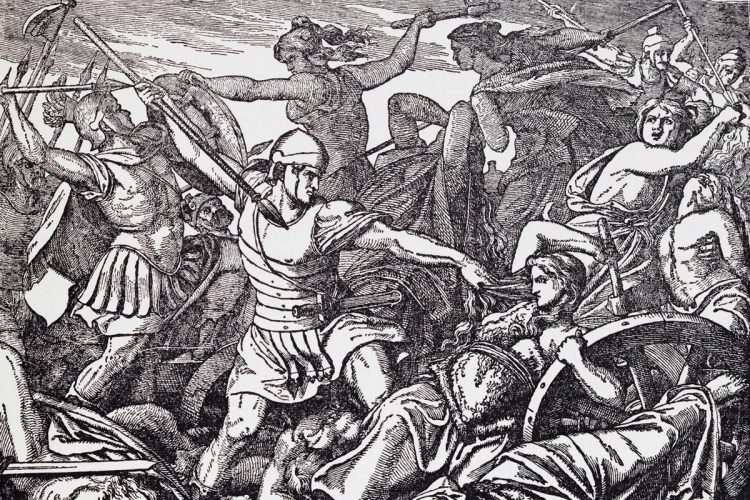Just War Theory is a term that deals with the justifications for waging war and how just wars are carried out. The justification for war (jus ad bellum) and conduct in war (jus in bello) are governed by a set of ethical, religious, philosophical, and legal guidelines that were developed from the general theological contributions of St. Augustine (354–430) and St. Thomas Aquinas (1225?–1274).
The first philosopher to delineate the principles that should determine when it is proper to engage in warfare, Augustine argued that the primary justification for war was to preserve a nation from serious harm. In his view, avenging a serious wrong was a legitimate Just War Theory 407 reason for war as well.
Securing political or economic gain, however, was not justification for war. Augustine also asserted that in order to be just war had to be declared by proper governmental authority and its scope should be limited to the minimum necessary to secure order and reestablish peace. In his 13th-century Summa Theologica, Aquinas restated three conditions that justified war: competent authority (a sovereign government), just cause (avenging aggression), and the right intention (impartiality over self-interest).
The general rules for just war set by Aquinas were retained by many theorists and jurists, who added their own conditions for a just war, particularly during the period between the 16th and 18th centuries. The model laid out by Francisco de Vitoria (1492–1546) and Francisco Suarez (1548–1617) examined the question of how to wage war either defensively or offensively. To justify a defensive war, a peaceful society had to suffer an aggressive attack.
And for an offensive attack to be justified, it had to be a response to a significantly damaging action. Both defensive and offensive warfare, however, had to be fought not only as a last resort but also in a proper manner. Where Vitoria and Suarez attempted to answer the question of how to wage war while maintaining Christian values, other theorists approached the topic of just war from a secular perspective.
Hugo Grotius (1583–1645), for example, noted that war was just if a nation faced immediate danger if a nation’s interests were defended with necessary force, and if the force used was commensurate with the danger. Grotius may have had the biggest impact on warfare and just war theory during the North American colonial period.
Read More – what is Rum Trade?
